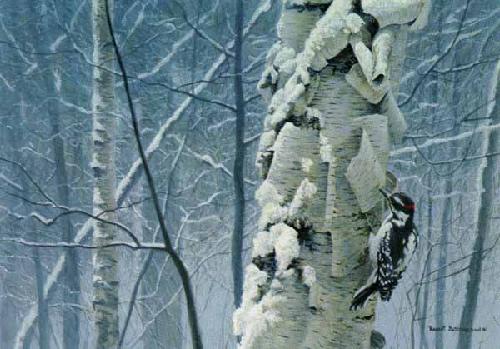|
Blackfeet
Tribe Immerses Students in Language to Counter 'Manifest Destiny'
"Tsa nii ksistikowatts sa-ahsi?"
teacher Shirley Crowshoe asks her class of elementary students sitting
in a circle on a thick rug in a bright, modern classroom. "What kind
of day is it outside?"
Jessie DesRosier, 13, is quick
to raise his hand: "Sugapii ksisko, ahstosopo," he says. "Nice
day, cold wind."
Jessie is one of a handful younger
than 60 in the 15,000-member tribe on this isolated reservation who can
speak its native language.
|
|
Mohegans
Revive Heritage Through Language
Despite
the fact that Bruce Bozsum grew up in Montville, where his family has
lived for hundreds of years, as a teen-ager Bozsum took only a limited
interest in his Mohegan heritage. It was easier to pass as white.
"I
distinctly remember hearing stories from my parents when I was young,
stories about locals treating our people as if we'd disappeared off the
face of the earth, refusing to acknowledge our culture," Bozsum said,
with a shrug of his shoulders. "Except for the times when someone
would call us 'dirty Indians.'"
|


![]()

![]()
![]()



